JULY 23(WED)
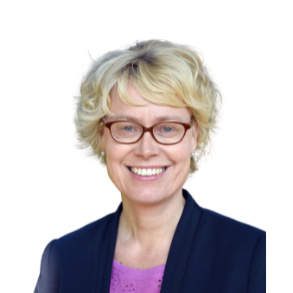
Keynote Speech
Åsa Johansson
OECD
Deputy Director
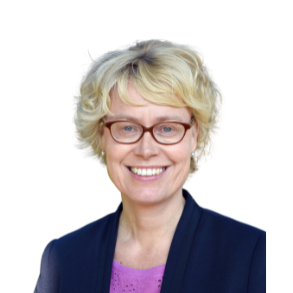
Keynote Speech
Åsa Johansson
OECD
Deputy Director
Presentation Title
Structural Policies to Address Economic Challenges
CV
Asa Johansson is currently Deputy Director of the Policy and Research Branch of the Economics Department of the OECD. She also served as Deputy Director of the Statistics and Data Directorate of the OECD.
Previously she was the Head of the Structural Policies Surveillance Division at the OECD Economics Department where she headed policy research on structural policies including overseeing the work on the OECD flagship publication Going for Growth.
Earlier in her career she was the Head of a Country Studies Division in the Economics Department overseeing the work on country review reports.
At the OECD she has led research on a range of topics including Environmental Policies, Economic Implications of Multinational Tax Planning, Taxation and Economic Growth, Public Finance, Intergenerational Social Mobility, Structural Policies in Housing Markets, Long-Term Growth scenarios, Long-Term Trade and Specialisation Patterns.
She has published in academic and policy-oriented journals on a wide range of topics. She holds a Ph-D in Economics from the Institute for International Economic Studies at Stockholm University
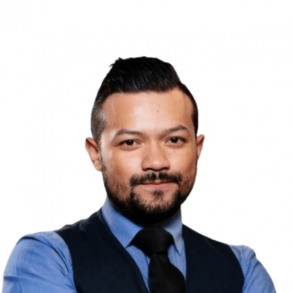
Keynote Speech
Ruben A. Rivera
CEE
Senior Director of National Academic Programs

Keynote Speech
Ruben A. Rivera
CEE
Senior Director of National Academic Programs
Presentation Title
From Struggle to Strength: How Economic Education Fuels Equality and Opportunity: An American Immigrant Educator’s Perspective on Lifelong Empowerment through Financial and Economic Literacy
Abstract
In this keynote address, Dr. Ruben A. Rivera—an immigrant, educator, and national program leader—shares his personal journey from growing up in an underserved, non-English-speaking household in the United States to becoming a leading voice in economic and financial education. His story is a testament to the transformative power of learning—and a powerful case for why economic education must be a cornerstone of lifelong empowerment.
Drawing on over two decades of experience working with students, teachers, and communities across the U.S., Dr. Rivera will explore how financial and economic education, when made accessible and culturally responsive, can serve as a pathway to equality and upward mobility. He will discuss key trends in American education, including state-level policy shifts, the rise of digital learning tools, and the growing emphasis on early financial and economic literacy from middle school onward.
With firsthand insights from the Council for Economic Education and its national programs such as the National Personal Finance Challenge, National Economics Challenge, Teacher Professional Development, and Invest In Girls, Dr. Rivera will offer strategies for reaching underserved learners and building inclusive learning ecosystems. This speech invites educators, policymakers, and researchers to view economic education not only as a tool for academic development—but as a global instrument for justice and opportunity.
CV
Strategic nonprofit executive with 20+ years of experience advancing economic and financial education in underserved communities. Skilled in scaling high-impact programs that reach over 50,000 students annually, with a focus on macroeconomics, personal finance, and workforce readiness.
Proven success in securing multimillion-dollar funding and leading national initiatives that promote financial capability and academic achievement. A proud Honduran immigrant and Title I school graduate, I bring an equitydriven lens to building economic mobility through culturally relevant instruction and cross-sector partnerships.
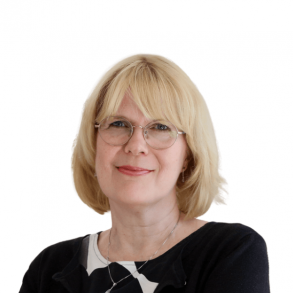
Session 1
Heli Tirri
Finnish National Agency for Education
Senior Adviser, Head of Unit (VET)

Session 1
Heli Tirri
Finnish National Agency for Education
Senior Adviser, Head of Unit (VET)
Presentation Title
From Classrooms to Work-Based Learning Environments: Finnish Approaches to Business and Economics Education
Abstract
This presentation offers a comprehensive overview of financial, business, and entrepreneurship education within the Finnish education system, with a particular focus on the learning environments used across different educational levels. The speaker begins by outlining the structure of the Finnish education system.
The core of the presentation focuses on upper secondary and higher education. It highlights how both general and vocational upper secondary schools incorporate economic education and entrepreneurship through national curricula and practical learning environments such as classrooms, online platforms, and real workplaces. Vocational education, in particular, emphasizes competence-based learning and workplace demonstrations. In higher education, universities and universities of appled sciences offer a wide range of business-related degrees and foster entrepreneurship through specialized academies and innovative learning environments. The presentation also introduces external learning environments―developed outside formal institutions―that support entrepreneurship and financial literacy among young people.
Through examples the audience is invited to explore how Finland’s education system encourages entrepreneurial thinking and financial competence in authentic, flexible, and student-centered ways.
CV
Head of Unit(VET), Finnish National Agency for Education(2024–Present)
Education Manager, South-Savo Vocational College(2019-2024)
Principle, Mäntyharju Adult Education Centre(2012–2019)
Head of Local Education and Culture Department(Additional to own work), Municipality of Mäntyharju(2013-2014)
Education Manager, South-Savo Vocational College(2010-2012)
Project Manager, South-Savo Vocational College(2003-2010)
Principle, Mäntyharju Adult Education Centre(2002-2003)
Educator, Mikkeli Vocational Adult Education Centre(~2002)
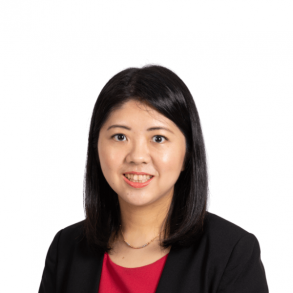
Session 1
Jolene Ong
Institute for Financial Literacy of Singapore
Trainer

Session 1
Jolene Ong
Institute for Financial Literacy of Singapore
Trainer
Presentation Title
FOMO, Fintech and Financial Pitfalls: How Educators Can Empower Financially Resilient Youths
Abstract
In today’s fast-paced digital era, youths are navigating an increasingly complex financial environment—one shaped by social media trends, instant gratification, and the rise of fintech innovations. From impulse spending driven by FOMO (fear of missing out) to early engagement with Buy Now Pay Later (BNPL) schemes and speculative investments, youths are often making financial choices before fully understanding their consequences.
This talk, “FOMO, Fintech and Financial Pitfalls: How Educators Can Empower Financially Resilient Youths,” examines how evolving attitudes toward money, digitalisation, and social influences are reshaping financial behaviours among the younger generation.
The role of educators today extends beyond imparting of financial knowledge, it encompasses a deeper responsibility to shape long-term financial mindsets. This session will explore how meaningful integration of financial literacy into education—supported by national initiatives and cross-sector collaboration—can empower students to make sound financial decisions.
Drawing on practical examples from Singapore, the talk will highlight adaptable strategies that can offer useful insights and relevance for educators seeking to nurture financially resilient youths.
CV
Trainer, Institute for Financial Literacy(2020-Present)
Adjunct Lecturer, Singapore Polytechnic(2017-Present)
Vice President, Societe Generale Singapore Branch(2013-2014)
Assistant Vice President, Raffeisen Bank International(2008-2013)
Account Manager, Overseas Chinese Banking Corporation(2006-Present)
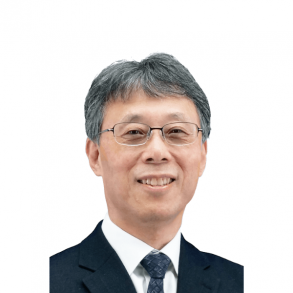
Session 1
HAHN, Jinsoo
Gyeongin National University of
Education
Honorary Professor

Session 1
HAHN, Jinsoo
Gyeongin National University of Education
Honorary Professor
Presentation Title
Economic Education in Korea
Abstract
This presentation aims to examine important characteristics and current state of economic education of Korea economic education.
Through the results of the financial literacy of adults and students, we will be able to understand the level of the financial literacy. Also, we will look at the current state of public economic education in schools, and out-of-school economic education efforts that are conducted by regional economic education centers and Korea Council for Economic Education.
CV
(Present) President, Korea Association of Financial Education
(Present) President, Korea Economic Education Association
(Present) Honorary Professor, Gyeongin National University of Education
(Former) Professor of Social Education, Gyeongin National University of Education
(Former) Head of Domestic Economy Team, Daewoo Economic Research Institute
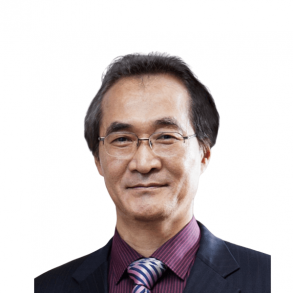
Session 2
LEE, Yunho
Sunchon National University
Emeritus Professor

Session 2
LEE, Yunho
Sunchon National University
Emeritus Professor
CV
(Present) Emeritus Professor, Sunchon National University
(Former) Professor of Social Education, Sunchon National University
(Former) President, Korea Economic Education Association
(Former) President, Korea Association of Social Education
(Former) Member, Economic Education Committee
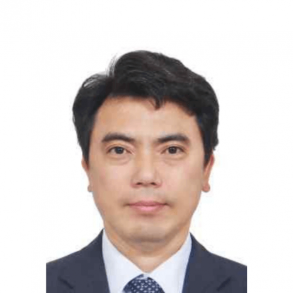
Session 2
SONG, Inho
KDI Economic Information and Education Center
Executive Director

Session 2
SONG, Inho
KDI Economic Information and Education Center
Executive Director
CV
(Present) Executive Director, KDI Economic Information and Education Center
(Former) Head of Economic Strategy Research Division, KDI
(Former) Linder College of Business Visiting Scholar, University of Cincinnati, United States
(Former) Member of the Policy Research Discussion Committee, National Economic Advisory Council
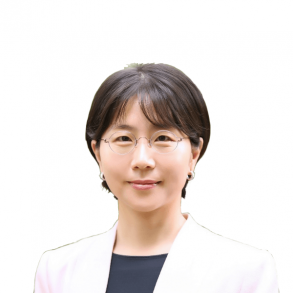
Session 2
Min, Sejin
Dongguk University
Professor

Session 2
Min, Sejin
Dongguk University
Professor
CV
(Present) Professor, Dongguk University, Seoul
(Present) Director, Korea Economic Education Association
(Present) President, The Korean Women Economists Association
(Present) Member of Economic Education Committee, The Korean Economic Association
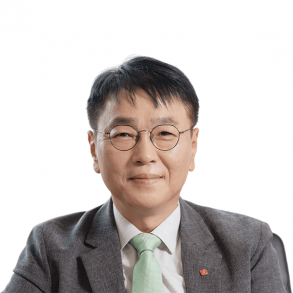
Session 2
JEON, Youngmin
Graduate School of Entrepreneurship and Industrial Management, Chung-Ang University
Adjunct Professor

Session 2
JEON, Youngmin
Graduate School of Entrepreneurship and Industrial Management, Chung-Ang University
Adjunct Professor
CV
(Present) Adjunct Professor, Graduate School of Enterpreneurship and Industrial Management Chung-Ang University
(Former) CEO, LOTTE Ventures
(Former) Director, LOTTE Academy
(Former) Managing Director, LOTTE Human Resources Team Managing Director
JULY 24(THU)
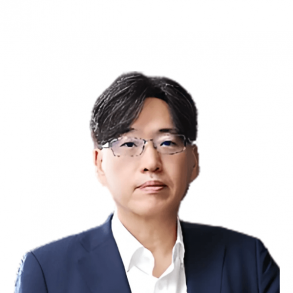
Session 3
SEO, Yongseok
Moon Soul Graduate School of
Future Strategy, KAIST
Professor

Session 3
SEO, Yongseok
Moon Soul Graduate School of Future Strategy, KAIST
Professor
Presentation Title
Economic Competencies Required by Future Society
Abstract
Today, we are facing an era of unprecedented uncertainty. This uncertainty is being structured in various dimensions such as the AI revolution, technology hegemony competition, demographic change, and climate crisis, which can act as a driving force for opportunities and innovation, not just a threat. We will have time for comprehensively analyzing these multidimensional changes from the perspective of economic capabilities and seeking strategies and action plans to turn them into opportunities.
CV
(Present) Professor, The Moon Soul Graduate School of Future Strategy, KAIST
(Former) Research Fellow, Korea Institute of Public Administration
(Former) Senior Research Engineer, KT Economic Management Research Institute
(Former) Chairperson of Basic Plan for National Strategy and Technology, Ministry of Science and ICT
(Former) Subcommittee Chairperson for Comprehensive Animal Welfare Plan, Ministry of Agriculture, Food and Rural Affairs
(Former) Member, Alchemist Grand Challenge Member, Ministry of Trade, Industry and Energy
(Former) Adjunct Professor, National Human Resources Development Institute
(Former) Policy Advisory Committee Member, Ministry of the Interior and Safety
(Former) The Mid- and Long-Term Strategy Cilvilian Member, Ministry of Economy and Finance

Session 3
CHO, Seonyeong
Korea Development Institute(KDI)
Senior Research Associate

Session 3
CHO, Seonyeong
Korea Development Institute(KDI)
Senior Research Associate
Presentation Title
Different Needs, One Goal: Rethinking Economic Education in the Digital Age
Abstract
Digital technologies have become deeply embedded in every aspect of our economic lives. Each generation faces unique demands when it comes to economic competency, from digital natives who have grown up in an online world to older generations more accustomed to traditional offline economic activities. This presentation will examine these generational differences and explore how economic education can evolve to effectively meet the needs of a rapidly changing digital enviornment.
CV
(Present) Senior Research Associate, Korea Development Institute(KDI)

Session 3
KIM, Youngeun
The Federation of Korean Industries Entrepreneurship Power House
Senior Director

Session 3
KIM, Youngeun
The Federation of Korean Industries Entrepreneurship Power House
Senior Director
Presentation Title
Abstract
We’ve learned the 3 elements of production: Land, Labor, and Capital. However, the ability to organize these three elements and create new values through innovation, that is to say, entrepreneurship is the most important era.
Entrepreneurship not only creates economic wealth, but it is also a key driver of changing society and culture.
Beyond the meaning of starting a business, it is also a different name for leadership that designs and executes the future.
The Federation of Korean Industries uses entrepreneurship as a K-growth engine, and defines it as the innovation spirit of everyone.
Office workers, teachers, housewives, doctors, soldiers, and civil servants are all ‘Entrepreneurs.’
To this end, we want to work together to consider how entrepreneurship education can be an innovative teaching tool that not only imparts entrepreneurial skills, but also fosters problem-solving abilities, self-directed learning and social responsibility.
CV
(Present) Senior Director, The Federation of Korean Industries Entrepreneurship Power House
(Former) Senior Director of Economic Education, The Federation of Korean Industries
(Former) Director of Research Support, Korea Economic Research Institute
(Former) Adjunct Professor of Economics, Dankook University
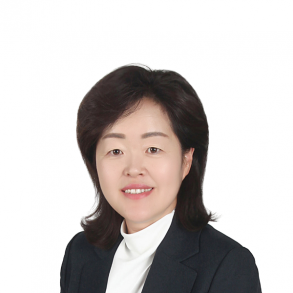
Session 3
BYUN, Jongim
National Institute for Lifelong Education
Executive Director
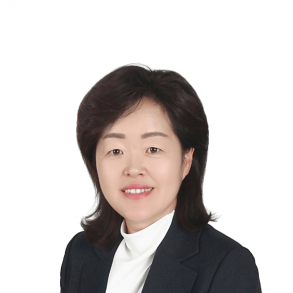
Session 3
BYUN, Jongim
National Institute for Lifelong Education
Executive Director
Presentation Title
Economic and Financial Education for Working Adults and Retirees
Abstract
This presentation aims to share the current status of economic and financial education for Korean adults in the context of preparing for the future of economic education amid a rapidly changing economic environment. To this end, it first explores the need for economic and financial education throughout the life cycle and then reviews various case studies targeting working adults and retirees. Based on these cases, the presentation offers suggestions on the future direction and key tasks of adult economic and financial education.
In Korea, economic and financial education is not yet a familiar or widely accessible form of learning for most adults. Nevertheless, local governments, nonprofit organizations, financial institutions, corporations, and lifelong learning institutions are making efforts to provide economic knowledge and enhance financial independence. These initiatives take various forms: economic literacy or personal finance management as part of liberal arts education, entrepreneurship education within vocational training, and financial literacy programs designed specifically for older adults.
Some adults recognize economic and financial education as essential life skills, placing importance on managing their finances effectively. However, many others remain unaware of its significance. If economic and financial education does not become an integral part of everyday education, this awareness gap may continue to widen.
Economic and financial education should help individuals achieve financial stability, strengthen their economic capabilities, and adapt to the evolving economic landscape. Furthermore, it should serve as a form of civic education, enabling individuals to make better economic decisions and fulfill their responsibilities as informed citizens. In this sense, economic and financial education should empower individuals not only to manage their own finances but also to collaborate with others to solve social problems, adapt to change, and create new opportunities in the economy.
To achieve these goals, there must be diverse, accessible learning opportunities tailored to different life stages—especially for working adults and retirees—within their local communities.
For working adults, education should address topics such as financial stability, money management, diversification of income sources, digital finance, and adaptation to e-commerce. For retirees, it should focus on topics such as fraud prevention, retirement fund management, legal aspects of trust and inheritance, and the use of mobile and digital financial tools.
When life-stage-specific and customized economic education is provided as a universal form of learning across the entire lifespan, it will contribute not only to individuals’ financial stability and improved quality of life but also to the overall economic well-being of society.
CV
(Present) Executive Director, National Institute for Lifelong Education
(Present) Advisory Committee member for Economic Education, KDI
(Present) RISE Committee Member, Ministry of Education
(Former) Member of ESD, UNESCO
(Former) Research Fellow, KEDI
(Former) Director, The Korean Society for the Study of Lifelong Education

Session 4
LEE, Sujin
Jeju Jungang Girls High School
Teacher

Session 3
LEE, Sujin
Jeju Jungang Girls High School
Teacher
Presentation Title
Economic Education for a Sustainable Society
Abstract
Reflect on capitalism and understand the need for economic education for a sustainable society. Through economic education, learners develop critical thinking skills to have an alternative perspective on capitalist society, and through the process of contemplating and practicing together, everyone can envision a sustainable future.
CV
(Present) Teacher, Jeju Jungang Girls High School
(Former) Debator, The 6th Economic Education Workshop
(Former) 1st Economic Education Class Designers, KDI
Co-authored [How to Conduct Oral Assessments in Social Studies], 2025
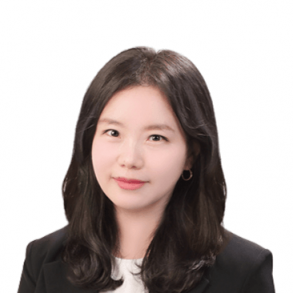
Session 4
SON, Eungyeong
Incheon Regional Economic Education Center
Specialized Lecturer

Session 3
SON, Eungyeong
Incheon Regional Economic Education Center
Specialized Lecturer
Presentation Title
From Vulnerability to Self-Reliance: The Beginning of Change Made by “Economic Education”
Abstract
Economic education for vulnerable populations should go beyond simple knowledge transfer and serve as a practical tool for them.
Faced with challenges such as economic instability, limited access to information, and digital exclusion, these individuals are inherently more vulnerable in managing their financial lives.
Therefore, financial education should be practical and tailored to each individual’s circumstances and level of understanding, helping them gain confidence through small successes and ultimately empowering them to take control of their lives.
In other words, economic education is a journey to develop the power to lead one’s own life.
CV
(Present) Specialized Lecturer in Economic Education, Incheon Regional Economic Education Center
(Former) Financial Supervisory Service (FSS) Certified Financial Education Instructor, KDI
(Former) Insturctor, Seoul Independant Living Support Organization
(Former) Economic Mentor, Self-Reliance Information ON




